"Heroes of the bazaar" as the peak of cowardice of the leadership of the UPR
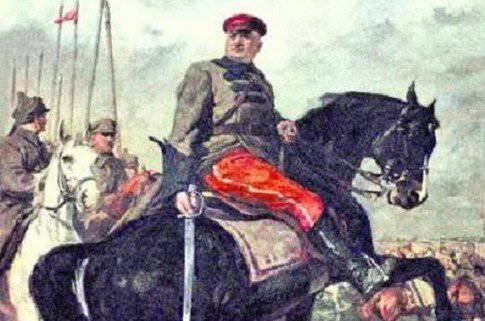
To school textbooks on stories this next failure of not fully sane people in lamb hats, who imagined that Ukraine was them, came under the name “Other Winter Celebration”. In fact, it is pleasant to fight in winter in our climate, if this word is generally applicable to such a vile occupation as killing one’s own kind. Off-road problem is missing. The rivers easily cross over the ice. It gets dark early, which allows the weaker side (and the Ukrainians, as you know, have always fought in the minority against multimillion enemy hordes) to fully apply their perfidy and cut off in the darkness of a sleeping enemy. Yellow-blue banners elegantly rinse over slender equestrian rows. Songs about Galya, which the Cossacks "povysili head down," as if by themselves hang in the air. And the corpses of enemies (and their own) do not decompose in the cold, as in hot July, poisoning the fields of historical battles with the stench of rotten meat, but neatly lie in fresh air, as in a refrigerator. Why not war in such "greenhouse" conditions?
The most desperate heads surrounded by Petliura were worn with the idea of the notorious “Winter campaign” since spring. In March, 1921, Poland concluded a peace treaty with Soviet Russia and Ukraine. In relation to Petliura and his UNR, this was a “kick”. The Warsaw agreement between Petliura and Pilsudski, signed in April of the previous year on the eve of a joint roll to the east, forbade any separate “pleasures” of the two allies with the Bolshevik “demons”. But Poland once again deceived the gullible Ukrainian enthusiasts and, having fought off the invasion of Tukhachevsky’s hordes to Warsaw, hurried to finish the job with peace, declaring itself the sole winner in the war in its history - in the future Poles will fight only for pickup, waving not so with sabers, like the feathers of their temperamental historians.
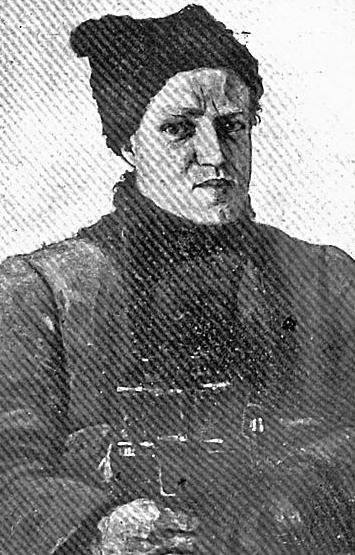
POLISH KIDOK. As a result of the treacherous Soviet-Polish treaty, a large number of unemployed Petliurists accumulated in internment camps in the territory of the Polish-Lithuanian Commonwealth. Pilsudski has not yet become a dictator. Poland was considered a deeply democratic country with the ancient traditions of gentry parliamentarism. In the Polish leadership, various groups of influence struggled, and they all had their own views on the so-called “Ukrainian question”.
The greatest lovers of Ukrainian independence at that time were concentrated in the Second Division of the General Staff of the Polish Army - that is, in military intelligence (in popular speech - “two-piece”). They were supposed to love Ukraine in the service, since this meant simultaneously harming Russia — besides, it was red, with a strong Jewish element headed by the Communist Party of Lenin and Trotsky. Doing dirty tricks at the same time to “Jews” and “Muscovites” (sorry for the terminology, but this is how it was called in Polish) was for the real Polish intelligence officer the highest patriotic joy.
Somewhere in the depths of the “dvuyki”, the idea of sending the most belligerent Petliurists, who donated the rations of camp rations and had not lost their morale, to the “liberation campaign” on Soviet Ukraine, matured. At least, the head of the aforementioned Second Division of the General Staff, Lieutenant Colonel Ignacy Matushevsky, supported her and ordered to provide an urgently organized Rebel Guerrilla headquarters, led by the general-Khorunim Yurk Tyutyunnik, with comprehensive assistance in armament, uniforms and food.
It would be possible to find a more serious candidate for the place of the leader of the liberation campaign, because the aforementioned cornet general was such only in name. In reality, he never led a single military operation on his own. The first and last rank of Yurka in the regular army was the rank of warrant ensign. One star on the shoulder straps was stuck to him as early as the Russian imperial army in 1915 after an accelerated course of study, and so she beamed lonely until the very end of hostilities, because in World War I Tyutyunnik fought mainly with rear boredom in 32 infantry reserve regiment in Simferopol. He met the revolution with the same ensign, about whom there was a joke in the Russian army: “The chicken is not a bird, the ensign is not an officer”. This meant only one thing - Tyutyunnik preferred to hang around deep in the rear.
Tyutyunnik's true vocation was the craft of the actor. It fully manifested itself after the 1917 year, when it was time to play the role of "people's lovers" and "professional Ukrainians." Yurko combined both of these roles. In terms of behavior, he reminded us of well-known “field commanders of Maidan”. Yurko made incendiary speeches, could produce texts for leaflets in packs, Ukrainianized his 32-th reserve regiment, turning it into the First Ukrainian name of Hetman Peter Doroshenko, but he never did any feats. The high point of his career during this period was the post of commandant of the guardhouse of the Kiev garrison, from where he jumped into the members of the Political Council at the Military Secretariat of the Central Rada. First of all, Tyutyunnik was not an officer, but a political functionary with inclinations to what is today called "self-PR."
In 1918, the future general-cornet suddenly turned out ... to the Bolsheviks as a commissioner to ataman Grigoriev, who recognized the Soviet power and was called the commander of the 1 brigade of the 1 th Zadneprovskaya division of the Red Army. When Grigoriev decided to go to the whites and Makhno finished him off at a meeting, the former commissar Tyutyunnik gave a tear at the head of fifty robbers, in whom the national consciousness awoke unexpectedly. The boys recognized the former ensign as their chieftain. On the way to Petlyura, several more such "gangs" adhered to this improvised detachment. As a result, Yurko came to the “head ataman” not with empty hands, but at the head of a host of two thousand people, which he solemnly called two divisions. After the 14 July 1919 was connected with the Petliurists, this squad was renamed the Kiev group of the UNR army, and at the head of it was put all the same Tyutyunnik.
The Kyiv group has not achieved much success. Basically, she skillfully dodged any clashes with both red and white, which would later be called the First Winter Campaign of the UPR Army. At that time, the army was commanded by General Omelyanovich-Pavlenko, the great master of retreats and Kutuzov's best after-graded student in the Ukrainian army. Former Colonel of the Russian Guard, he from the military school confirmed the covenant of the winner of Napoleon: “The main thing is to save the army!” For some time, this outstanding “deserter” Tyutyunnik was considered to be his deputy, without affecting anything in reality - as with Chapaev, he always had former staff officers of the pre-revolutionary Russian army who had switched to the UNR service, without letting the ensign-politician do any particularly outstanding nonsense.
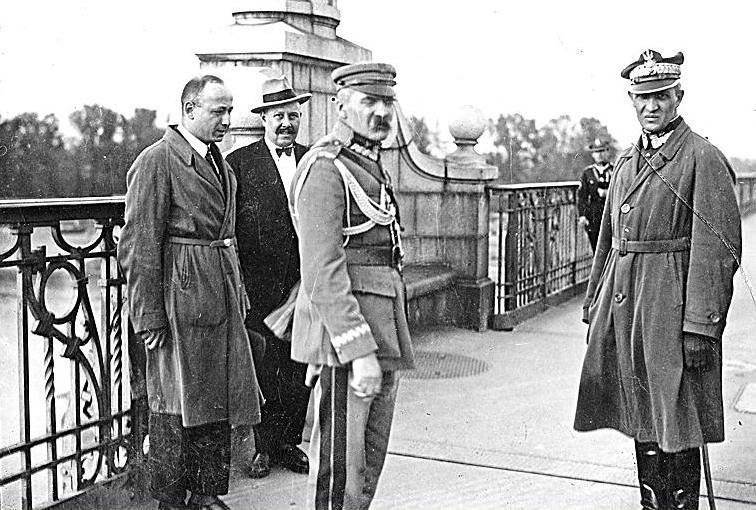
But all this, together with self-advertisement, created Tyutyunnik's reputation as an outstanding specialist in guerrilla warfare. In May, 1920, Petliura awarded him the rank of Crown General - in the current terminology - Major General. If we understand the guerrilla war as evasion from collisions with the enemy, in which Yurko succeeded since his service in the tsarist army, then this would be a really invincible partisan - he always ran away from the enemy before the battle began.
UKRAINIAN "NAPOLEON". Nevertheless, Tyutyunnik himself, like many of his contemporaries, compared himself to Napoleon. Yurko always carried with him a postcard depicting the French emperor. Shaving in the mornings, he assured eyewitnesses, he took in front of the mirror Napoleonic poses, knitted his brows, protruded his lower lip - in a word, by all means “mavpuvav vidatnu lyudina”.
When the Polish General Staff decided in the spring of 1921 for the unemployed veterans of the defeated army of the UPR, the second winter campaign, Napoleon Yurko was immediately chosen as its leader. Petliura sympathized with this matter. But did not interfere in the details. Simon Vasilyevich, we give him his due, was the most intelligent of the Ukrainian leaders of that era. He believed that the invasion of Ukraine, tired of civil war, will end in complete failure. But since he was told that Tyutyunnik was asleep and sees himself in Petlyura’s place, then, as a shrewd politician, he didn’t argue with the idiotic idea — if the Bolsheviks unscrew the evil rival of his potential rival! Himself more cash will remain ...
First put in charge of an independently operating large unit and deprived of talented advisers (none of the sensible military wanted to join the idiot, knowing beforehand how the stupid thing would end), the “general-cornet” turned out to be a disgusting organizer. Unlike Napoleon, he had to know from his own experience that in winter there are severe frosts in Ukraine, but for some reason he did not take care of warm uniforms for his army. Tyutyunnikovtsy campaigned right in what they were released from the camps - that is, in the old worn outfit.
Yurko could have sent a corresponding request to the Polish commissary commissar who prepared this dirty trick to the Bolsheviks, in a professional language called “sabotage”. Moreover, the Poles did nasty things wholeheartedly and had corresponding resources to that. The army of Tyutyunnik, they supplied 45 with machine guns, gave out rifles, ammunition to everyone, and the cavalry not only swords, but also peaks - as to their lances. By 1921, very few people knew how to swing their sabers professionally because of the great losses - the best cutters had long cut down each other on the fields of endless battles. And even an inexperienced cavalry allowed a peak to stab the enemy, like a piece of kebab for a skewer - of course, if the enemy had none. The question is: what leshe Tyutyunnik did not ask generous Poland also overcoats, warm underpants and housings? Answer: because even if he was a general of the Khorunzhim, he still remained an ensign - a junior officer, whose duty it was only to raise the half-company in the attack. The ensign's brain should not be overloaded with economic problems, otherwise, he will become too clever and refuse to die heroically. But, having happily escaped thanks to the service in the rear of death in the First World War and clearly not meeting the new high position of the “commander in chief”, Tyutyunnik posed a danger, first of all, for his subordinates. There were enough brave people among them. But commanded them, let's face it, an outstanding ram.
On November 4, the Tyutyunnik battle group 1921, numbering 1200 bayonets and sabers and calling itself the Ukrainian Insurgent Army, invaded from Poland into Soviet territory. Volyn, according to the Riga Peace Treaty, was in the hands of the Poles. To Kiev was at hand. Tyutyunnik's group walked along the railway towards Korosten.
Basically, the exploits of the Tyutyunnikovs were not worth even snuff tobacco. They came down to executions of Bolshevik activists captured in the villages. “Z'їli obіd, zіbrali here 20 pіdvіd kharchiv vіd villagers,” recalled the participant of the campaign, Lieutenant Zorenko, - arrived to the village of Lіsovod, de on the streets of 5 ozbroєnih (the maritime team of the mіlіtsі)) Dovіdavshis vіd them, scho in the village є kom_sar іz own ambassador, idemo tudi. I made a commemoration of the young people, and reshtu, vbdravshi vіd them zbroyu, vipustili ".
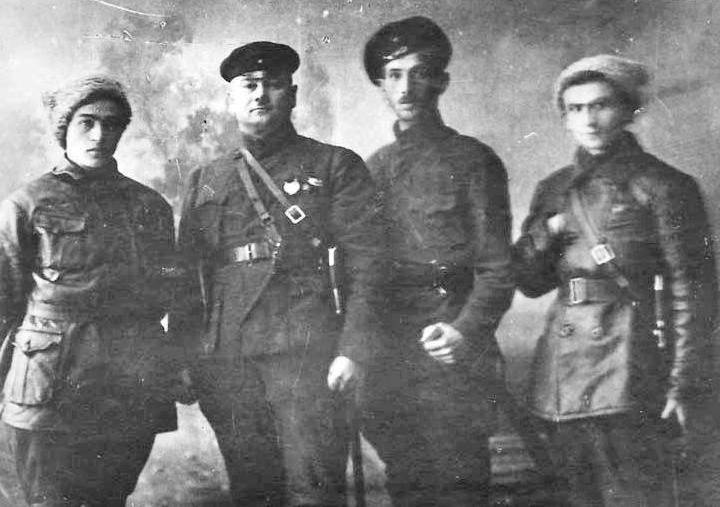
More from his memoirs: Moskaliv not bulo, buried 8 kepskih horses that 12 rushnits іz side by side. Mіzh tim on the highway bіlya plant passing v_ddіl moscowskogo іхіти by force in 6-40 people ... Were hurt themselves close to them, they didn’t poddilis в flowed away to us ”
GET ON KOTOVSKY! Lieutenant Zorenko was, apparently, also a half-fool, like his general-cornet. But an honest semi-fool. You read his revelations and immediately believe. We immediately see that it was so. Unsuccessful annoying attempts to seize the "Muscovites" show that the fighting spirit of the UPA Tyutyunnik was close to zero. Or maybe it even went down to negative values, like the temperature outside. Red Muscovites run away, but no one is pursuing them, as they are firing off. However, infinitely long Muscovites were not going to run away. Soon they went on the counteroffensive, and UPA Tyutyunnik began to run away. With all possible speed.
Naturally, innumerable hordes of Muscovites appear in the memoirs of the defeated participants of the Second Winter Campaign. Just the whole Red Army! In reality, the Red command put forward only one cavalry brigade, the famous Kotovsky, to intercept the Tyutyunnik. On the night of 16 on 17 in November, on the eve of the decisive battle near Bazaar near the village of Maliye Menko, the Kotovtsi made a grueling march, catching up with elusive rebels. Their horses were exhausted. There was no artillery in the brigade. Like machine guns. However, there was what is called fighting spirit. Seeing the Tyutyunnik wagon train stretching along the road, the former sergeant-general of the 12 Belgorod Ulan regiment of the tsarist army Krivoruchko commanded the brigade led the brigade into a saber attack. (Kotovsky did not participate in the decisive battle.) But his subordinates had what they needed. And, basically, not "Muscovites", but the Bessarabians (today there is the Transnistrian republic) and the Ukrainians - the former Petliurists, who turned to red, and those that were red from the very beginning of the Civil War. Krivoruchko was a real Ukrainian, only Soviet, which does not give us the right to forget his military exploits. He was born 1887, in the village of Bereznyaki, Cherkasy district in Kyiv region - it is hard to think of a more Ukrainian Ukraine! He organized a partisan detachment in 1918, fought against Hetman Skoropadsky, and commanded a regiment in the Kotovsky brigade. It was Krivoruchko who headed the breakthrough of the brigade from the entourage of 1920 in July near Kremenets, scattering the fleeing Poles in all directions. It was he who defeated Tyutyunnik's group under Proskurov in the fall of the same year. Now the hard-hitters had no complexes in front of old enemies. He beat them in the past. And he was going to hit again. And the nerves of Tyutyunnik could not stand it. Seeing the lava of red cavalry rushing through the snow with bare swords, the general-cornet threw his "army" and rushed to flee to the nearest forest. Behind him rushed, abandoning the Polish peaks, his "cavalry" - headquarters and equestrian intelligence.
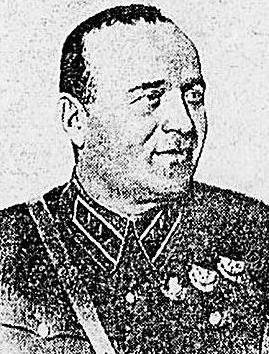
GENERAL, PLAYED PERSON. From the memoirs of Lieutenant Colonel Rembolovich, a participant in the Winter Campaign: “I got a year's 12. Golovna colony crash. In Tsiu Khvilina vid the tail, the colonies were full of cries: “Kinnota, kinnota!” Turning the right-handed head, I woke, screaming at the head of the colonel like a Moscow kvinnot… Ochі vsih turned to General Tyutyunik. Winning Takhozh turning his head to the bik of the voyage of the kinnoti і… Kar'єrom, having jumped up to the head of the colony, and behind him with the colony ñ Col. Yanchenko, offended by the brigade commanders (Colonel Sushko and the second colonel Shramenko) І kіnna hundred of Humar. Pіznіshe to them came the next one kіlka foremen and Cossacks, yaky bulo hang out ahead yak rozdіdku. All the price has been borne in the Polish-soviet cordon. ”
Tyutyunnik acted like the last bastard. He threw his army and fled. And the army, having seen the flight of its “Napoleon” and its “marshals”, surrendered. That is the truth about the Second Winter Hike. The most important and still the most hidden from Ukraine.
Subsequently Tyutyunnik will request a personal amnesty from the Reds and permission to return to Ukraine. He will work as a screenwriter at the film studio (by the way, he co-authored Dovzhenko in the early film “Zvenigor”!) And will even play himself in the film “PKP”. And then he will be shot. Like those 359 of his subordinates, whom he threw at 17 Bazaar on November 1921 of the year, becoming the three hundred and sixtieth executed - for a round bill. And if I feel sorry for them, as well as the dashing Krivoruchko's chopper, who will become a kombrig and will perish during the repressions in 1938, then Tyutyunnik is not a drop! Dog - a dog's death!

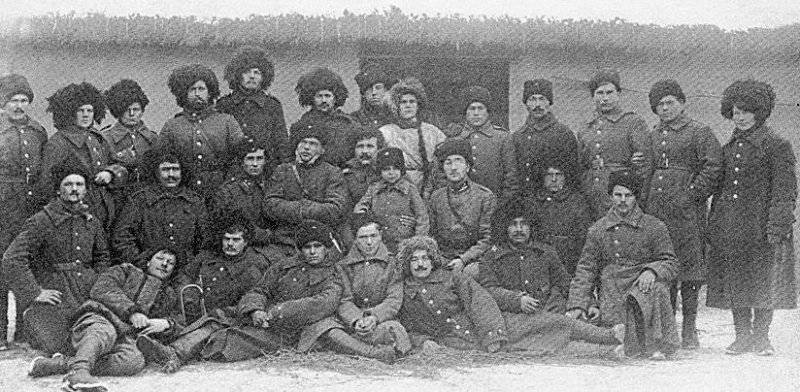
Information